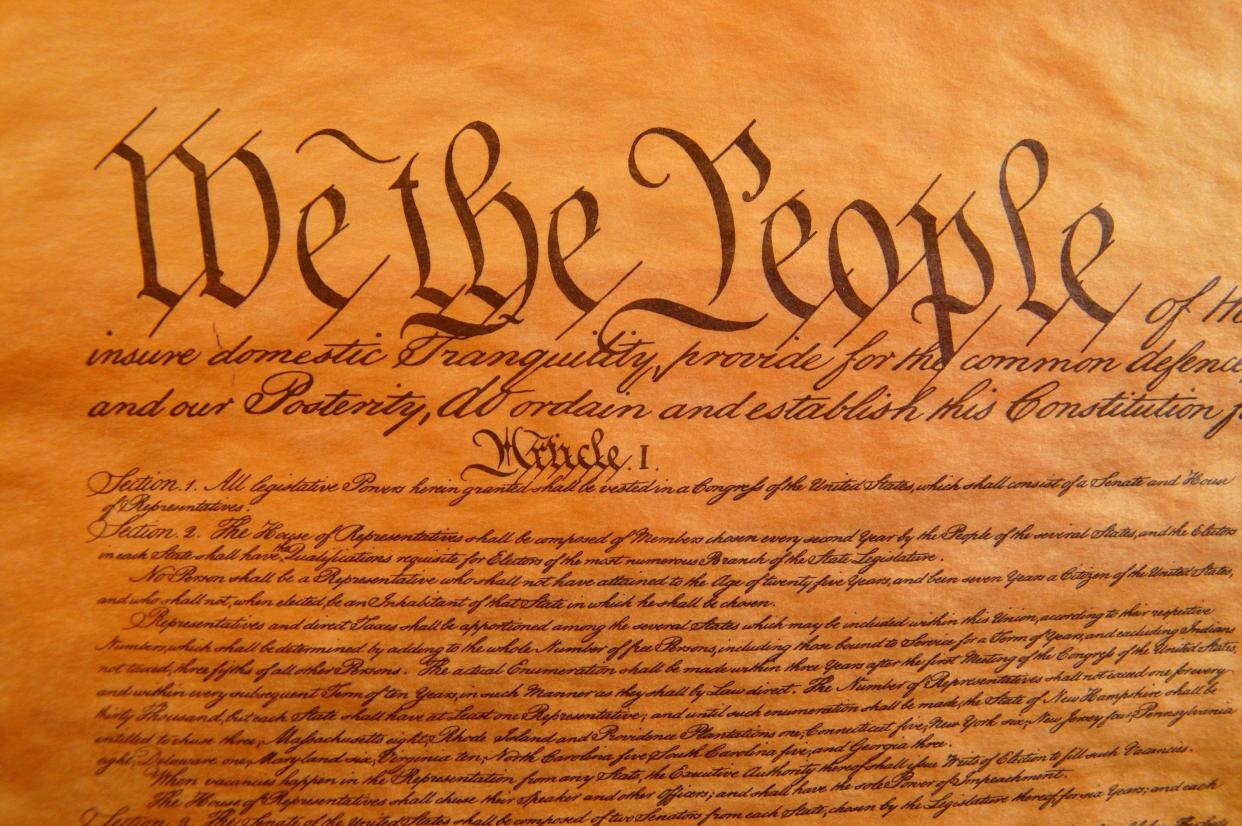Letters: Convening a Constitutional Convention is a dangerous idea

Regarding, "We need to call for Constitutional Convention," (July 17): L. Terry Clausing's guest column calling for a new Constitutional Convention is the most dangerous opinion I have ever read in The Enquirer. Does Mr. Clausing seriously believe that a new Constitutional Convention would not be subverted, as our current state and national legislatures are, by large corporate interests?
We can't even get sensible gun laws passed through Congress – despite the fact that the majority of our citizens, including the majority of Republicans favor them. And Gov. Mike DeWine is no better. In spite of promising the people of Dayton, Ohio, that he would do something about the free access to guns, he has actually signed a bill that makes things worse.
Our executive and legislative branches are totally in thrall to big interests and corporate lobbies on guns, the environment, you name it. What on earth makes him think that a Constitutional Convention wouldn't be? Or is he looking forward for an opportunity for his own company to write a Constitution behind our backs?
Patricia Wittberg, East Price Hill
Term limits are best reason for a Constitutional Convention
I read with interest L. Terry Clausing's article, "We need to call for a Constitutional Convention." Unfortunately, Mr. Clausing left out the most important need for a Constitutional Convention, which is to amend the U.S. Constitution to impose term limits for Congress. It's way past time to "drain the swamp" of career, self-serving politicians. Maybe with congressional term limits, the five amendments he proposes wouldn't be necessary.
Steven L. Steigelman, White Oak
Let's understand the Constitution first before changing it
From a constitutional standpoint, I don't know which would be more difficult to effect: standard amendment through Congress or trying to organize an actual Constitutional Convention. Either way, we may find that L. Terry Clausing's suggestion regarding abortion may soon be decided by the current Supreme Court.
I think it likely that the court will soon take up an appropriate case and rule that the unborn are "persons" under the 14th Amendment. The protection of the unborn will then become a federal responsibility effected nationwide. In order to protect the unborn, we must first detect the unborn, therefore, the federal government will have to set up a nationwide program of mandatory pregnancy testing. Any female found pregnant will have her body involuntarily conscripted for the full term of pregnancy. "Stop and frisk" will turn into "Stop and pee." A "plus" sign on the stick will result in sending the woman to the nearest Pregnancy Concentration Camp until birth occurs.
As regards the Second Amendment, let's all actually read that amendment and the underlying Art. I, Sect. 8, cl 15 and 16 "Militia Clauses." The intent of all of this was to restrict the power of the federal government by having a general population that would be properly organized, armed, disciplined, trained, and led for safety, security, and law enforcement purposes. Let's not change the Constitution until we properly understand the Constitution. Obviously, the "well regulated Militia" no longer exists, but that's a failure of the federal and state governments to do their constitutionally required duty to serve the true interests of "we the people."
Again, let's understand the Constitution before we go about changing it.
Brian Bloedel, Accomac, Virginia
This article originally appeared on Cincinnati Enquirer: Letters: Convening a Constitutional Convention is a dangerous idea

